Now we’ve gone too far. All our years of shuttling ourselves around in exhaust emitting vehicles, smoking cigarettes to look glamorous, throwing our designer water bottles into landfills, and throwing our designer knockoffs into the garbage has finally taken its toll. We’ve made Mother Nature mad, and Hell hath no fury like a woman scorned.
Not only is Mother Nature going to get her revenge, she’s going to get us where it hurts — on our faces. Mother Nature knows vanity, and she knows that women have thin skin in more ways than one, so she’s not pulling any punches. Not even the most eco-friendly attitudes will save you now. We are all guilty by association, and it’s going to take a lot more than environmental awareness to protect your skin.
Now, it’s not all gloom and doom. We are taking steps in the right direction, and maybe one day Mother Nature will get her beauty back and stop messing with ours, but until she does, here are some defensive actions you can take to protect your skin from environmental pollution.
1) Antioxidants
These days, it’s hard to imagine that there was ever a time before “antioxidant” was a commonly used word in the health and beauty vocabulary. Yet, it was not so long ago that most of us would have drawn a blank if asked to define it.
Antioxidants themselves have been around forever. They’re present in the foods we eat, in the products we use, and even in our own bodies, yet it took the knowledge of free radicals to actually give them their name.
So what exactly are free radicals? Free radicals are the highly reactive compounds that can bond with and cause damage to the body’s cells. They are most associated with cancer development. Free radical damage is often caused by environmental pollutants, including harmful UV rays, toxins, smoke and other contaminants found in the air. Antioxidants bind to these free radicals, which prevents them from bonding to your cells, which is why antioxidants are such an important part of protecting against skin damage.
Skin Firming
Not only are antioxidants effective at preventing free radicals from damaging skin cells, they can actually help to reverse the effects of past damage. Co-Enzyme 10, more commonly known as Co-Q10 is especially useful for improving skin health and rejuvenating its appearance. It is most often found in eye-firming and toning products.
Anti-Inflammatory
Antioxidants are also valued for their anti-inflammatory properties. Alpha-lipolic acid, and antioxidants found in green tea and pine tree bark are known to increase skin circulation and cell metabolism, thereby preventing inflammation to keep acne and wrinkles at bay.
Reduction of Wrinkles
When it comes to Mother Nature taking her revenge, she could probably not do it more cruelly than with wrinkles. Luckily, she also gave us weapons against them. Antioxidants are an excellent way of staving off the wrinkles caused by UV rays and free radicals, especially Vitamins C and E. Hunt them out in cosmetic serums and eye creams.
Repairing Sun Damage
When sun’s rays target the skin, antioxidants can help to stimulate circulation and encourage new cell growth. This reverses the appearance of sun damage and wrinkles and helps skin to look younger.
2) Cleansing the Skin
Have you ever heard of a toxic relationship? That’s a perfect way of describing the bond between the ozone layer and your skin. They’re just no good for one another. According to physiology professor and expert of pollution’s effect on skin, Giuseppe Valacchi, “It’s almost as if ozone were designed to injure our skin.”
Let’s break down cell breakdown. The outer layer of the skin contains lipids, which are the fats that bind cells together. Ozone oxidizes these lipids, and that damages the skin’s barrier, which sets off a domino effect of DNA destroying events. So what can you do?
According to Dr. Gilley Mulvaney, you can use sunscreen against UV rays, but it won’t be effective against pollution. While she says antioxidants are the most beneficial ingredients in protecting against pollution, (especially Vitamins C and E) she points out that cleansing can make quite a difference as well.
Apparently, particulate matter attaches itself to the skin every day, but it takes a while before the harmful effects set in. The key is to wash off the molecules before they can cause long-term damage.
Skin expert Dr. Carl Thornfeldt recommends using cleansers that will “wash off bad molecules without stripping skin’s natural oils.” He says that a steady routine of cleansing, barrier repair and antioxidants is the best defense against pollution.
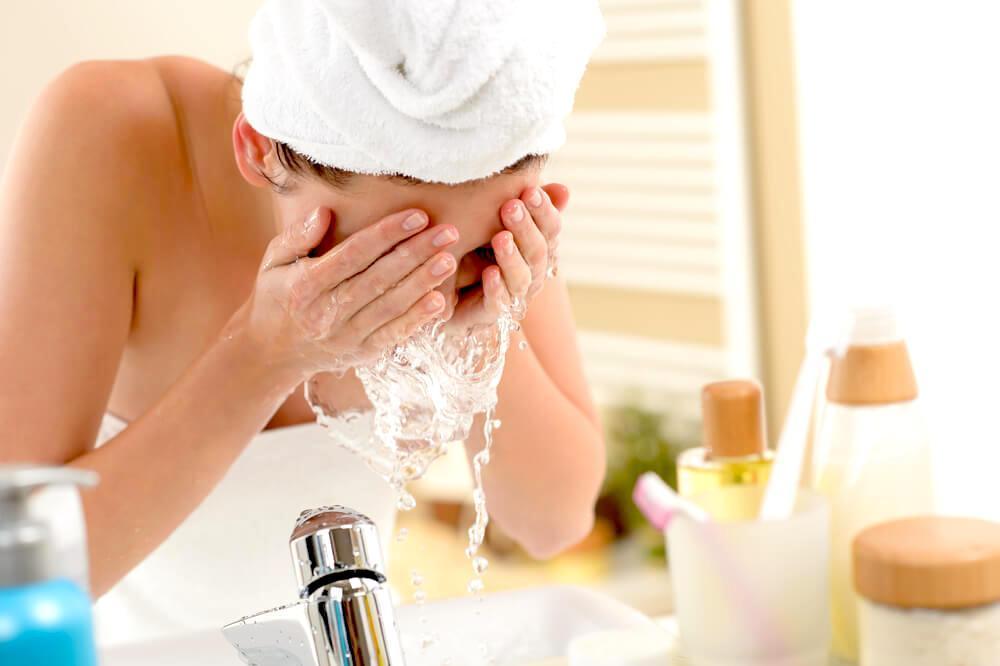
“People forget that the main goal of our skin is to be an immune barrier. If you have a compromised skin barrier, it’s letting things in.”
When it comes to some of the strongest skin defenders, look for beeswax, glycerin, niacinamide, and lanolin to lock moisture in and keep the skin barrier strong.
3) Skin and Water Pollution
Now here’s a bit of a conundrum. Pollution toxifies your skin, water detoxifies it, therefore drinking water should be a great way of protecting skin against pollution; but what if the water is polluted?
Your water may look clear, but it’s loaded with chlorine, and that’s clearly a problem. While it’s used to treat drinking water, chlorine is also a toxic chemical that can damage the skin and lungs, and that can take its toll over time. When you shower, steam opens your pores, allowing chlorine to infiltrate. That causes skin to dry and crack, stripping skin of natural oils and causing wrinkles. Of course you want to keep drinking water, but if you really want to keep skin protected, it shouldn’t be your sole defense.
Moisturizer makes a great reinforcement, and should be used in addition to drinking water to keep skin hydrated. For truly clean water, use a filter to keep out chlorine and other toxins and limit your amount of time spent in swimming pools or highly chlorinated baths or tubs.
4) No Smoking
With all the work being done by humans to save endangered species, you would think that humans would stop endangering themselves. While the smoker is the biggest hazard to him or herself, secondhand cigarette smoke remains to be one of the most common causes of pollution. Smoke causes wrinkles by narrowing blood vessels in the skin while depleting it of essential nutrients and vitamins. It also breaks down the collagen and elastin that keep your skin firm and causes skin to wrinkle prematurely. Cigarette and cigar smoke are also full of free radicals, so if you’re looking to protect your skin against pollution, don’t damage it yourself.
5) Omega-3 Fatty Acids
Remember we were talking about lipids? How we were saying that lipids are the fats that bind the cells together, and how important they were to our skin, and how ozone destroys them like they were no more than enemy sprites in a “Legend of Zelda” video game?”
Well, now let’s talk about Omega-3’s because Omega-3s are a crucial part of keeping skin’s lipid content intact and one of the most important fatty acids when it comes to protecting skin against pollution.
Along with dead cells, omega-3s make up your skin’s barrier, which acts like a seal over your skin keeping moisture in and pollutants from getting in. Sufficient amounts of omega-3 are necessary for nutrient flow and waste elimination, plus they add an extra layer of photoprotection to keep harmful UV rays from penetrating. Sounds like just what the dermatologist ordered, right?
Omega-3s may seem like the perfect pollution solution, but the only problem is, the body doesn’t make them by itself, so you’re going to have to rely on outside sources. As far as foods go, the richest content of Omega-3s can be found in salmon, sardines, and other fatty fish, as well as in omega eggs and grass-fed beef.
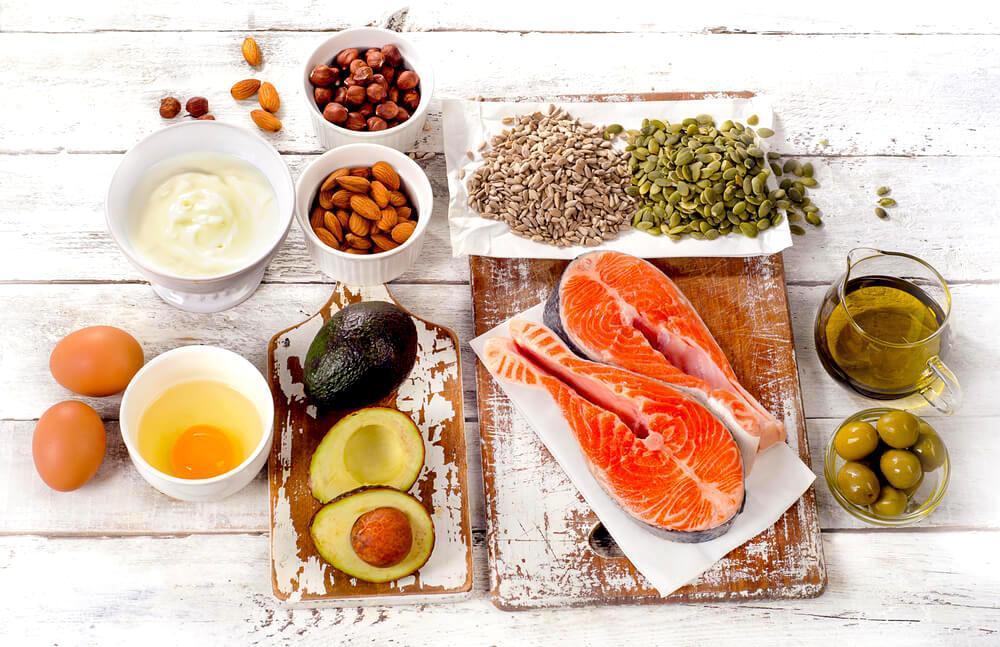
They can also be found in plant-based sources like chia seeds, walnuts, flax seeds, and hemp seeds. If supplements are a more appealing option, cod liver oil and vegan algae oil both contain adequate amounts of omega-3 to support healthy skin, and don’t “go bad” like some other fish oils.
6) Anti-Pollution Diet
You know what they say, “Garbage in, garbage out,” and with so much garbage literally coming into our skin, we certainly don’t need to be getting any more from the foods we eat. Here are some of the best foods for helping to keep your system and your skin safe from the harmful effects of pollution –
- Olive Oil: Long before it was the name of Popeye’s wife, olive oil has been a key ingredient in keeping skin moisturized, and now that it antioxidative properties are known, there’s another reason to incorporate olive oil into your skin routine. Eat it cold, or slather it directly on your skin. Cooking olive oil can rob it of some of its health benefits.
- Avocados: If SPF stands for SuPerFood, you can count avocados in. The high amount of monosaturated fat in avocado helps to form a protective layer over the skin, making it the highest natural SPF of all vegetable oils. It is also rich in palmitic oils, so it absorbs easily, and keeps skin smooth and soft.
- Broccoli: If you’re looking for some sun protection, you might want to try catching some shade from this super mini tree. While trees may be known for catching and absorbing harmful particulates, the vitamin C in broccoli can neutralize free radicals to stave off aging and keep skin young and healthy looking from the inside out. Plus, if you’re looking for some sun protection, the SPF in broccoli is thought to be better than most sunscreens when it comes to blocking UV rays.
- Tomatoes: Want the best sauce (source) for blocking pollution? Try tomato! Tomatoes are not only a great way to make spaghetti and meatballs, they’re also great antioxidants. Rich in flavonoids, like lycopene and zeantheum, tomatoes are known for their ability to block free radicals, plus it’s another great reason to eat pizza.
7) Sunscreen, Moisturizer, Exfoliator
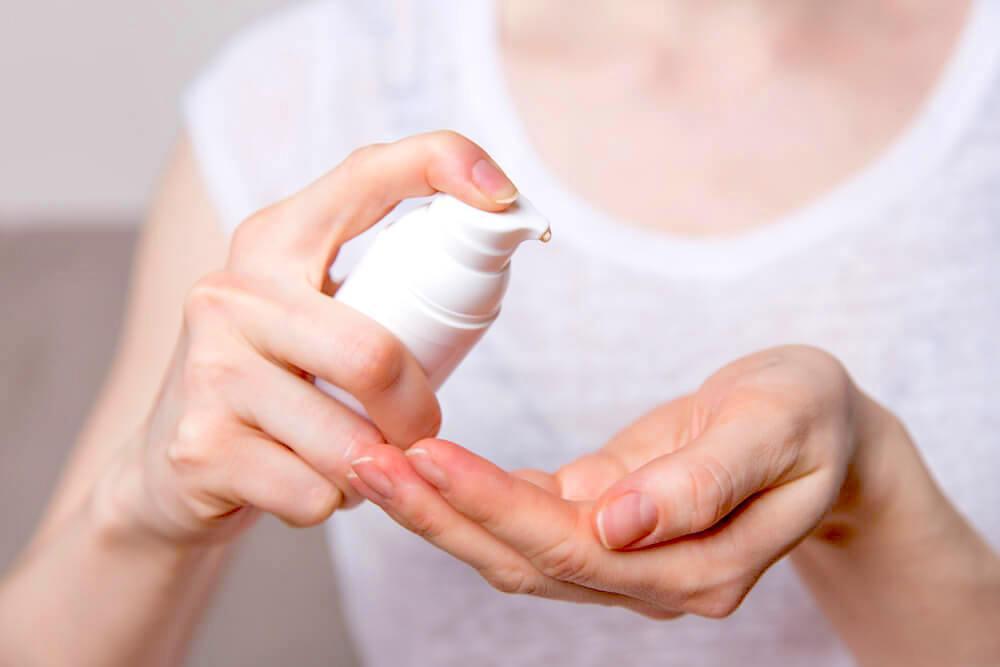
It is almost difficult to imagine what a major impact pollution has had in our lives. Our efforts to fight pollution has affected everything from the clothes we wear, to the utensils we use, from our food packaging, to our technology, and in no small way, our skin routine. What used to be a daily regimen to help us look our best has now turned into a strategy to prepare our skin for the assault of free radicals to help it recover afterward.
While the products we use remain much the same, they have taken on a new role as defenders against pollution. Here are some of the key products in the skin routine that have come to play a crucial role in the line against pollution –
- Moisturizer: While always known for its ability to seal hydration into the skin and prevent moisture from escaping, moisturizer is now also a vital part of keeping the skin barrier strong. It is one of the most effective steps in the skin routine for keeping pollutants out, and as always, an essential part of skin care.
- Exfoliation: Exfoliation is most recommended as a part of the nightly skin care routine, as damage control against daily pollutants. Use it when you come home to clean pores of free radicals and aid in cell regeneration.
- Sunscreen: Still one of the most potent blockers of UV rays, sunscreen is considered more of a necessity than a recommendation these days. SPFs are now commonly found in multitasking eye creams, foundations, and other cosmetic products to save time and money. Use them in addition to a full body sunscreen to protect skin from damage.
The worst thing about pollution? It really gets under your skin. Keep it out with antioxidants, the right products, the right diet, and the right habits, and give us the dirt on what you’re doing to keep your skin clean in these dangerous times.

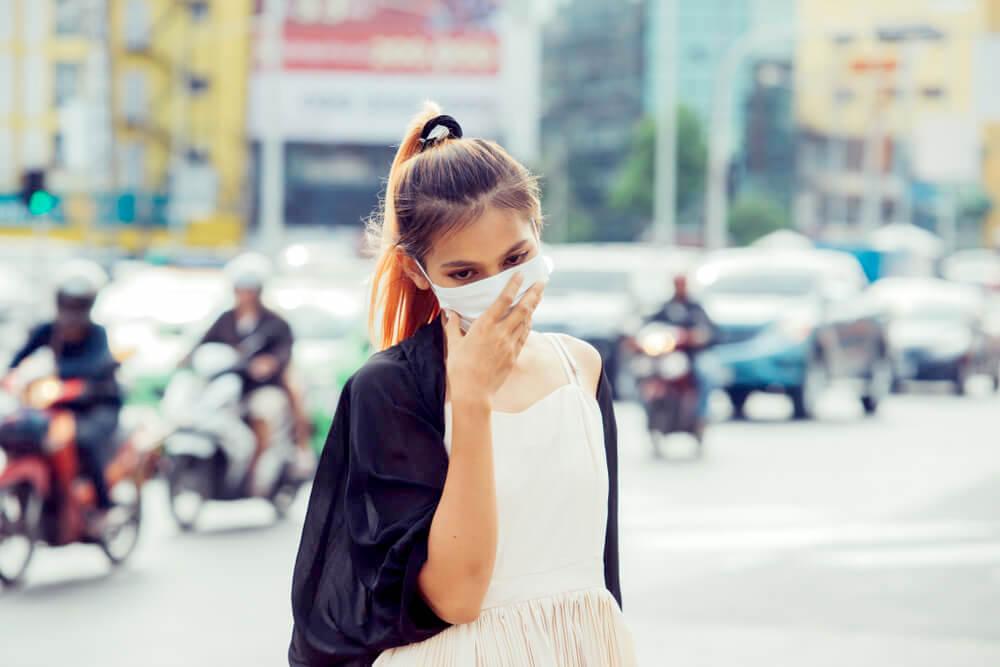
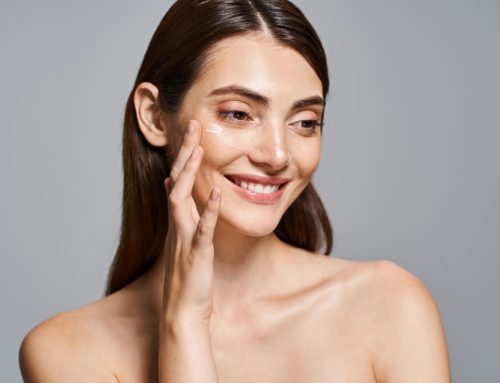
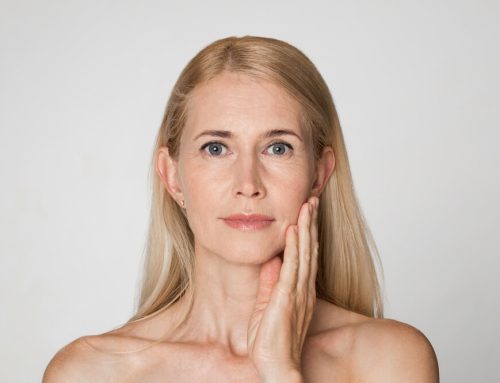

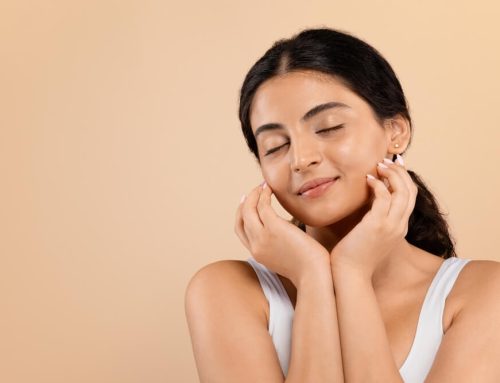
Leave A Comment